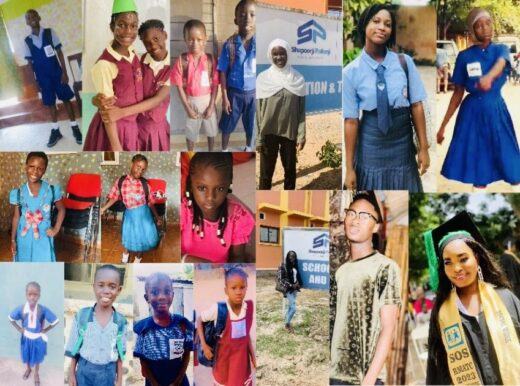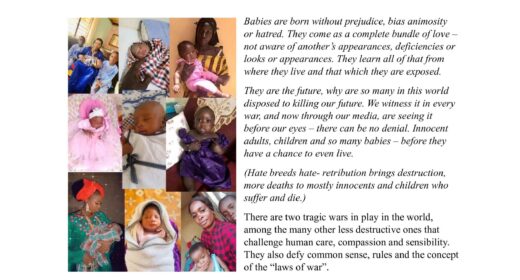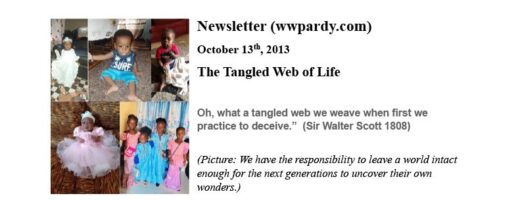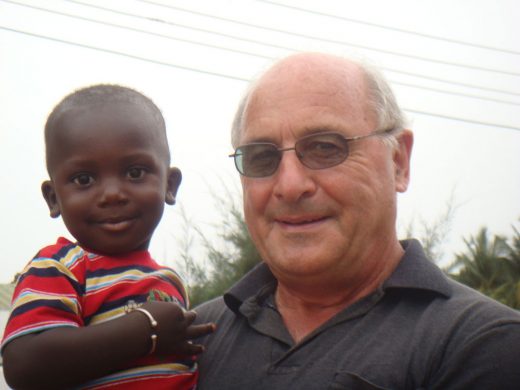
My new perch in The Gambia offers different insights and a new window through which to contemplate the world. While watching current world events unfolding, impacting so many, one has to ask “what about the children”.
In this country, while things are stable, life is difficult for many, but they persevere. The average annual income is $400, and, like most African countries, infant and child mortality are higher than in most developed countries and providing adequate health and social services remain a challenge, especially in rural areas. Although almost everyone suffers in such an economic and social environment; it is the poorest and the children who are worst impacted.
This is not to suggest that children are uncared for, it is quite the opposite. It is obvious they are cherished! The dilemma is that many parents don’t have the wherewithal to care for them, as they should and as they would like. Recently my work took me to a small rural village where I facilitated a planning retreat for representatives of local government. This village had access to clean water at a central point in the village, but other services were very basic.
One young man invited me to the nursery school/ daycare centre. He is the head teacher; a voluntary position. He has to find other means to support his family of a wife and two children. He completed high school and wanted to ensure other children in his village could do the same.
Over fifty children from 3-7 attend this basic facility, which as I understand was built with the support of private individuals from Britain. In addition, funds are raised to provide food for the children while they are at the school.
He approached me because he was in need of educational material and books. He had a more pressing problem though, as his two year old son was ill and he had neither the resources for medicine or means to get to the clinic to see the doctor. This was easily resolved; the educational material will take longer.
This brings me back to my question of “what about the children”. When decisions are made in the context of global and development issues, there is little consideration for children; despite rhetoric to the contrary.
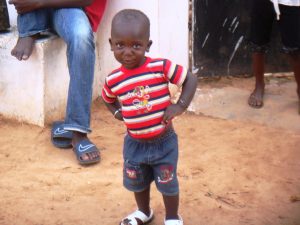
Most often, when people are abused by their dictatorial rulers, sanctions are approved, funds seized and embargos imposed, all of which punish the poor and their children.
In Iraq and Afghanistan where both countries have been flattened with bombs, much of their history has been destroyed. Many mothers and children were killed as “collateral damage” and, as a result, both countries have had their futures imperiled.
It appears that democracy will be supported when it is convenient and doesn’t impact developed countries. If it does, then procrastination sets in, or support often provided to the dictatorial power in control. A blind eye is turned to the carnage that follows even if it is mothers and children.
These decisions are made to protect those with vested interests, despite their political protestations to the contrary. These interests are not that of the poor or their children.
Then children don’t own large corporations selling oil, armaments or technology: they certainly don’t own banks.
Neither can children pay lobbyists, or provide incentives to buy favour with politicians and thus influence government decisions.
Children cannot influence the amount of corporate welfare provided nor stop the cut backs in aid, education and social programs that impact them the most.
They can’t even influence the myriad of support programs, usually developed by those privileged, even when their context and scope are flawed.
Just imagine, if over the past sixty years, all decisions that were taken in the world had been viewed through a prism of children and their well being. What a different world it might be.
Perhaps we would have changed our approach to growth at any cost, to a more equitable distribution of the world’s huge resources. We might have been more serious about genuinely solving the issues of poverty, hunger and inequality. There might have been fewer costly wars, less greed, less need and more sharing.
The vast sums of aid would have been directed in different ways instead of making many wealthy, both in the developed and underdeveloped world alike. Such aid has often created more problems for people than it solved.In this world of plenty for some, there is no need for hunger, under education, nor sick and dying children.
Children are the future, but children need nurture and care; not just political rhetoric. They need support and genuine education based on a set of values that recognizes their value, worth and importance. They also require opportunity when they grow up.
Providing this will require enlightenment for many that life for all is finite, no matter your wealth; and a willingness to genuinely focus on the children and what would make life fairer for them.
Written by Bill Pardy
March 24th, 2011
